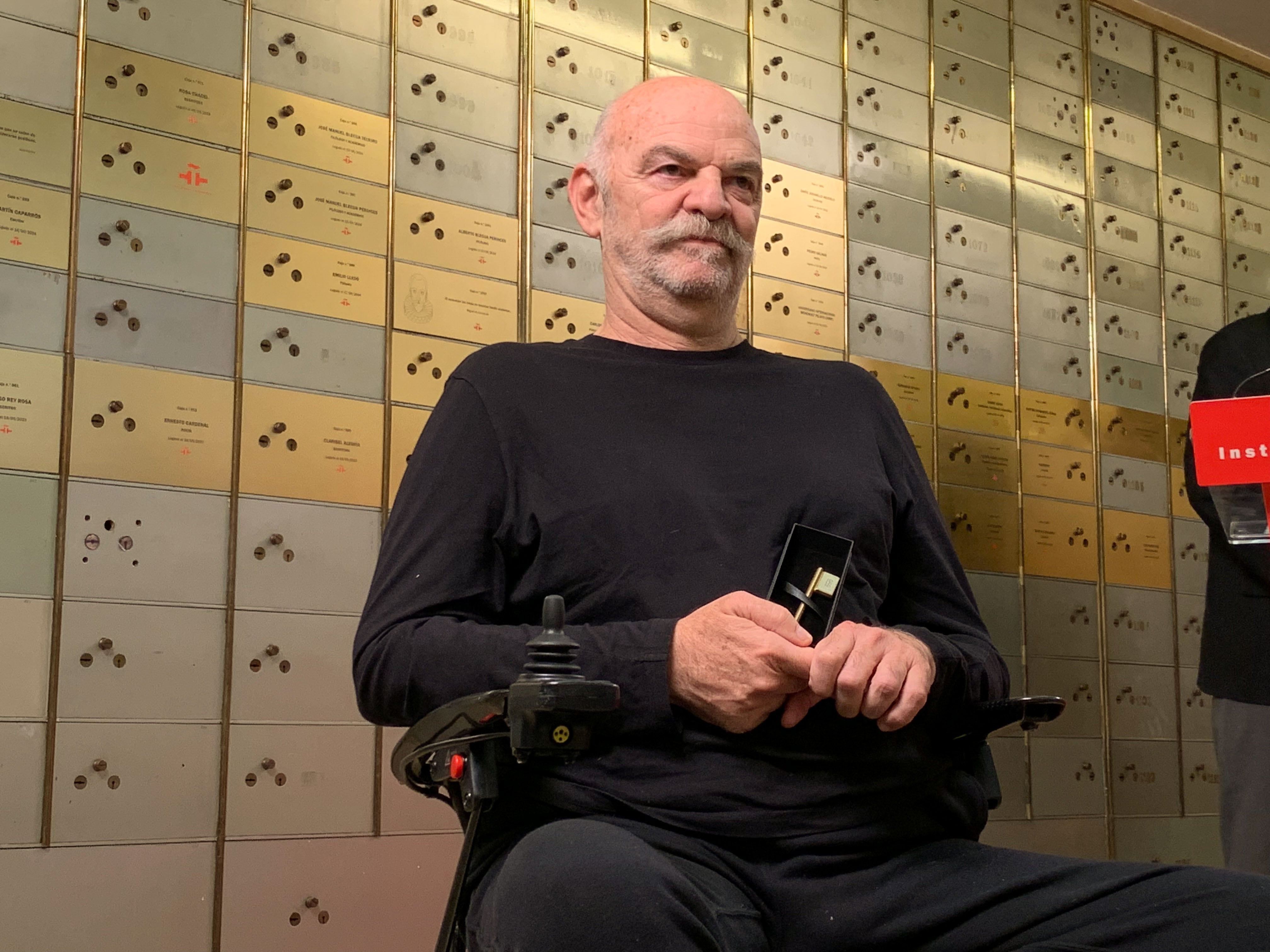The writer Martín Caparrós (Buenos Aires, 67 years old) explained in an interview in The Vanguard who suffers from ALS, a disease that affects the motor neurons of the brain and spinal cord. The journalist, also a columnist for EL PAÍS, narrates the consequences of this diagnosis he received, explained in the Catalan newspaper, two and a half years ago, in his memoirs. First of all (Random House), which are published this Thursday, October 20. “I didn’t want my friends to see me as a dying man. I only told Marta (Marta Nebot, journalist and her partner) when I found out two and a half years ago. And I said it in the book, since I started writing it, without knowing if I was going to publish it or not,” he tells fellow author Jorge Carrión in the interview.
“ALS is a misleading word, it’s like saying cancer, many diseases that we call by those names we don’t really know how they differ from each other,” explains Caparrós, author of hunger y America. “I decided to write it anyway, without knowing if it would be posthumous or not, because I felt like it; and I let it rest for a while, and last winter I read it, I saw that this double journey was interesting, through my life and through my illness, but what made me decide to publish it was that I gave it to Marta to read and she was OK; and that I started to have symptoms in my arms, so that I was going to come out whether I wanted to or not.”
One day after the interview was published in The VanguardNebot wrote a column this Sunday in the newspaper Public titled coming out of the closet. “We would admit the obvious, when it began to be noticed that he was sick, but not the name of his illness because it changes what those who look at you see and we did not want them to look at us differently,” says the journalist.
This disease causes muscle atrophy until the patient is completely immobile, unable to eat, speak or breathe, but with their mental and cognitive faculties intact, so they are fully aware of their deterioration. Life expectancy is, on average, and as Caparrós himself explains, three to five years, although there can be large variations: around 50% of patients live three or more years after detection, around 20% of patients can live five years or more, and up to 10% survive more than 10 years.
“I’m not sick, but I am his arms and his legs, I do his and mine, I propose to live by his side whatever comes and try to be what he needs,” Nebot continues. “No, I don’t have the makings of a cook, or a nurse, or a saint, but I do have the makings of trying to take care of the person I love until the end. I believe in this and I intend to do it with pride all the time.”
Caparrós takes a chronological tour of his life in his memoirs. He only mentions the name of his illness on one occasion, at the end of the book. In the words of Nebot: “They are titled First of all because it is clear that we are all going nowhere. In them he recounts his present and past life, interspersing his today with his milestones, his references and his contingents. From the current one, he describes like no one else what happens to him and how he digests it and how he hates it and how he embraces it.”
In addition to Nebot, with whom she became a de facto couple “a few months ago because we do not want any doctor to separate us at crucial moments because we are not registered,” says the journalist, Caparrós has shared her memories with her mother Marta. and two of his ex-partners, the academic Erna von der Walde, and the novelist Margarita García Robayo. Since he learned the name of his illness, he also explains in the interview that his son Juan visits him in Madrid, where he lives with his partner, from Buenos Aires every three months. “And that gives me great pleasure,” says the writer.
Caparrós also does not mention the word euthanasia in his book. “It’s an ugly word, don’t you think? It should be called ‘cacotanasia,’ he tells Carrión, to whom he confesses that he has not been informed of what the protocol is like in Spain and, he assures, he does not rule it out. “I think that if I ever have to do it, I will do it, what do I know. And that’s it.”

